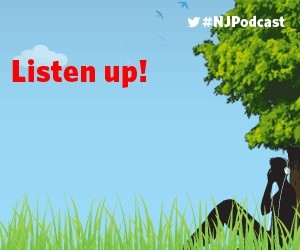As we know students, nowadays, are well versed in various technologies and are seen as easy adapters and quick learners of any technological tools. There is a lot of evidence for using podcasts across the disciplines and, in particular, in science courses. In an engineering course, for example, students were asked to create a short podcast that illustrated real-life application of an engineering projects. In a biology course, students are asked to create a video that explains concepts that otherwise would be hard to understand without visuals (interio r organs, cells, etc).There is a great site that gathered all of the best podcasts related to Biological sciences. By some other schools, podcasts are used for discussions with leading scientist and industries and government officials (see the Science and Society Podcasts channel). The chemistry class also makes use of podcasts to support the learning of this subject like giving a chance to listen to the entire lesson in case of absences. Another useful resource for Chemistry is “ChemPod”, geared towards the chemistry community, from interviews with Nobel Prize winners, to discussing topics such as nanotechnology research, organic or surface, chemistry. In all of these fields podcasts are used and implemented with different aims and instead use the class time for discussion and interaction. Recently the journal, New Scientist reported after having done a study on podcast integration and revealed that “New psychological research suggests that university students who download a podcast lecture achieve substantially higher exam results than those who attend the lecture in person.” However to make it all work and be effective faculty have to define their course objectives for using podcasts, and at the same time, realizing that pedagogy must be the driving force behind their integration. Even though podcasts are very popular and accepted in academia, further research is needed to provide answers to questions related to their usefulness in education.
r organs, cells, etc).There is a great site that gathered all of the best podcasts related to Biological sciences. By some other schools, podcasts are used for discussions with leading scientist and industries and government officials (see the Science and Society Podcasts channel). The chemistry class also makes use of podcasts to support the learning of this subject like giving a chance to listen to the entire lesson in case of absences. Another useful resource for Chemistry is “ChemPod”, geared towards the chemistry community, from interviews with Nobel Prize winners, to discussing topics such as nanotechnology research, organic or surface, chemistry. In all of these fields podcasts are used and implemented with different aims and instead use the class time for discussion and interaction. Recently the journal, New Scientist reported after having done a study on podcast integration and revealed that “New psychological research suggests that university students who download a podcast lecture achieve substantially higher exam results than those who attend the lecture in person.” However to make it all work and be effective faculty have to define their course objectives for using podcasts, and at the same time, realizing that pedagogy must be the driving force behind their integration. Even though podcasts are very popular and accepted in academia, further research is needed to provide answers to questions related to their usefulness in education.

